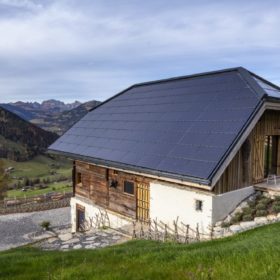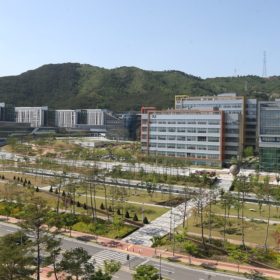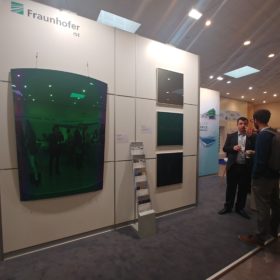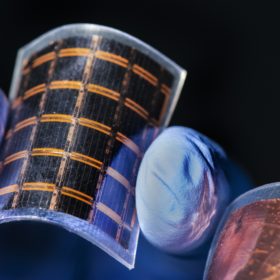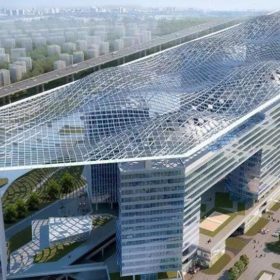The weekend read: Establishing a cost-effective BIPV sector in Europe
Why hasn’t more building-integrated PV (BIPV) been installed throughout the world? The simplest answer is that a PV module does not architecture make. The nature of the building process – its methods and logic – are key factors affecting technological transfer, as seen in the steel and concrete industries, which have been the basis of modern architecture for the past century. In many cases, standardization would go against the case-by-case approach to design and the interdisciplinary nature of the field. Solar architecture therefore involves a synergic concept of constructive and functional correctness, while always engaging an “aesthetic intentionality.” So how can the market segment continue to drive down costs?
The ballooning potential of curved solar cells
Researchers in the U.S. claim to have developed a manufacturing process based on the use of a latex balloon that could lead to the production of more efficient curved electronic devices, including hemispherical solar cells.
Bigging UP the carbon-free pioneers: Step forward 3S Solar Plus
pv magazine’s UP campaign aims to highlight industry movers who embrace carbon reduction and the circular economy in their operations and Swiss BIPV manufacturer 3S Solar Plus boasts an impressive sustainability record.
New efficiency record for flexible CZTS
Scientists at South Korea’s Daegu Gyeongbuk Institute of Science and Technology have set a new efficiency record of 11.4% for a cell based on a copper zinc tin sulfide thin film applied to a flexible substrate.
Discovery challenges accepted wisdom on organic PV
Researchers at the University of Warwick in the U.K. have made a discovery that could lead to new designs for organic PV devices. Their findings could open up a new range of materials for the electrode layer and bring low cost, flexible organic PV devices a step closer commercial reality, say the academics.
Opportunities for integration: EU PVSEC 2019
Germany’s Fraunhofer ISE is presenting a wide range of solutions for integrated PV – alongside farming, vehicles, the built environment and more, at the 2019 EU PVSEC show happening this week in Marseille.
Singyes threatens to pursue winding up costs against Deutsche Bank
The heavily-indebted Chinese BIPV manufacturer has warned the petition issued by the German lender to recover a disputed $6.27 million debt could threaten the survival of the business as it would halt a planned bail-out by Beijing.
Another step toward affordable III-V solar cells
The U.S. National Renewable Energy Laboratory reports further progress in bringing down the cost of III-V solar cells. Scientists have refined their ‘brand new, 50-year-old’ D-HVPE technology to speed up the production rate for gallium arsenide solar cells by a factor of more than 20. The development is a potential step toward making incredibly efficient solar cells cost effective for everyday purposes.
Embattled Singyes Solar outlines debt restructuring plan
The project developer and BIPV maker wants creditors to agree to postpone settlement of their debts for three years and will offer a financial incentive – provided a proposed Chinese state-backed bailout is voted through by its shareholders.
Shanghai’s Rafael Gallery to host 1 MW of Hanergy modules
Chinese thin film manufacturer Hanergy has announced plans to integrate its CIGS modules into the 150,000 square meter rooftop of a ‘sky bridge’ project planned as part of a major ‘tech city’ project under construction in Shanghai.


